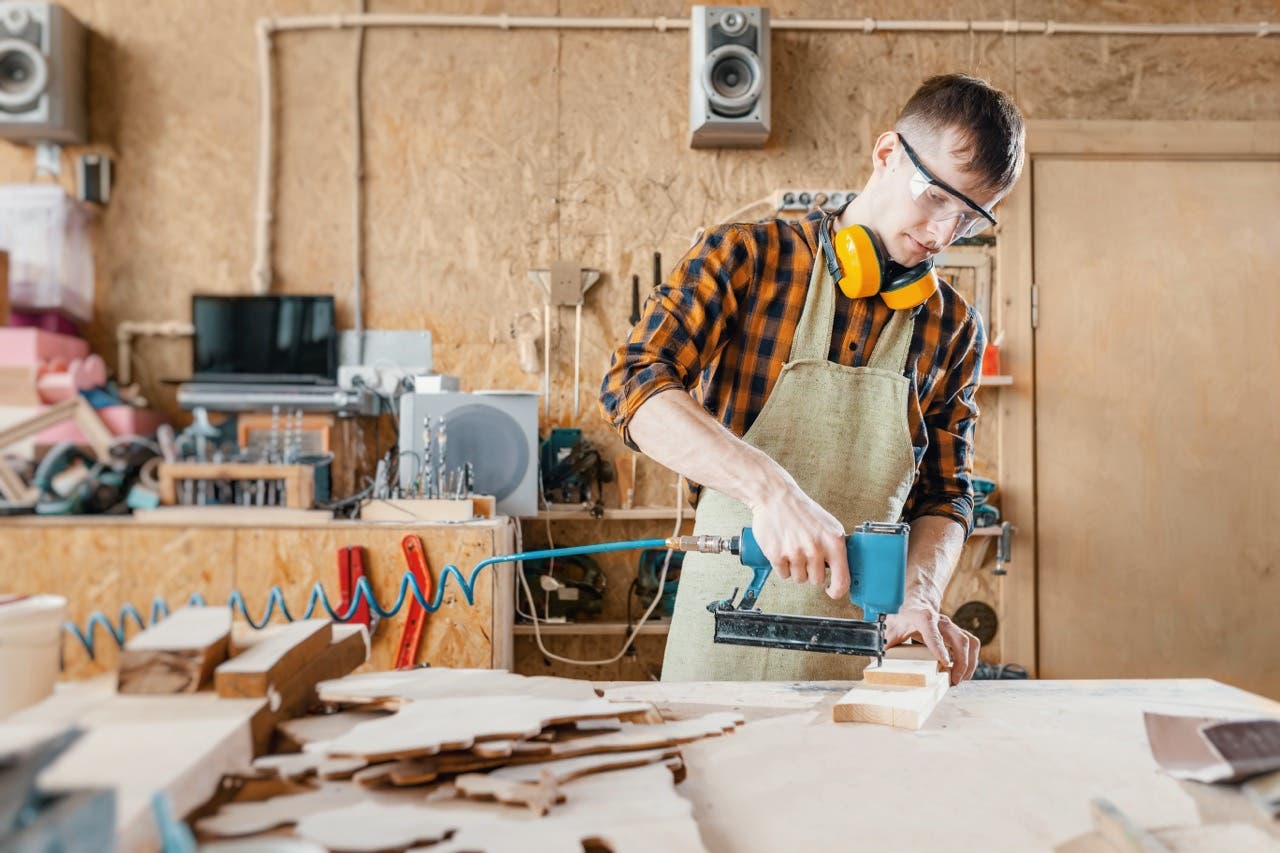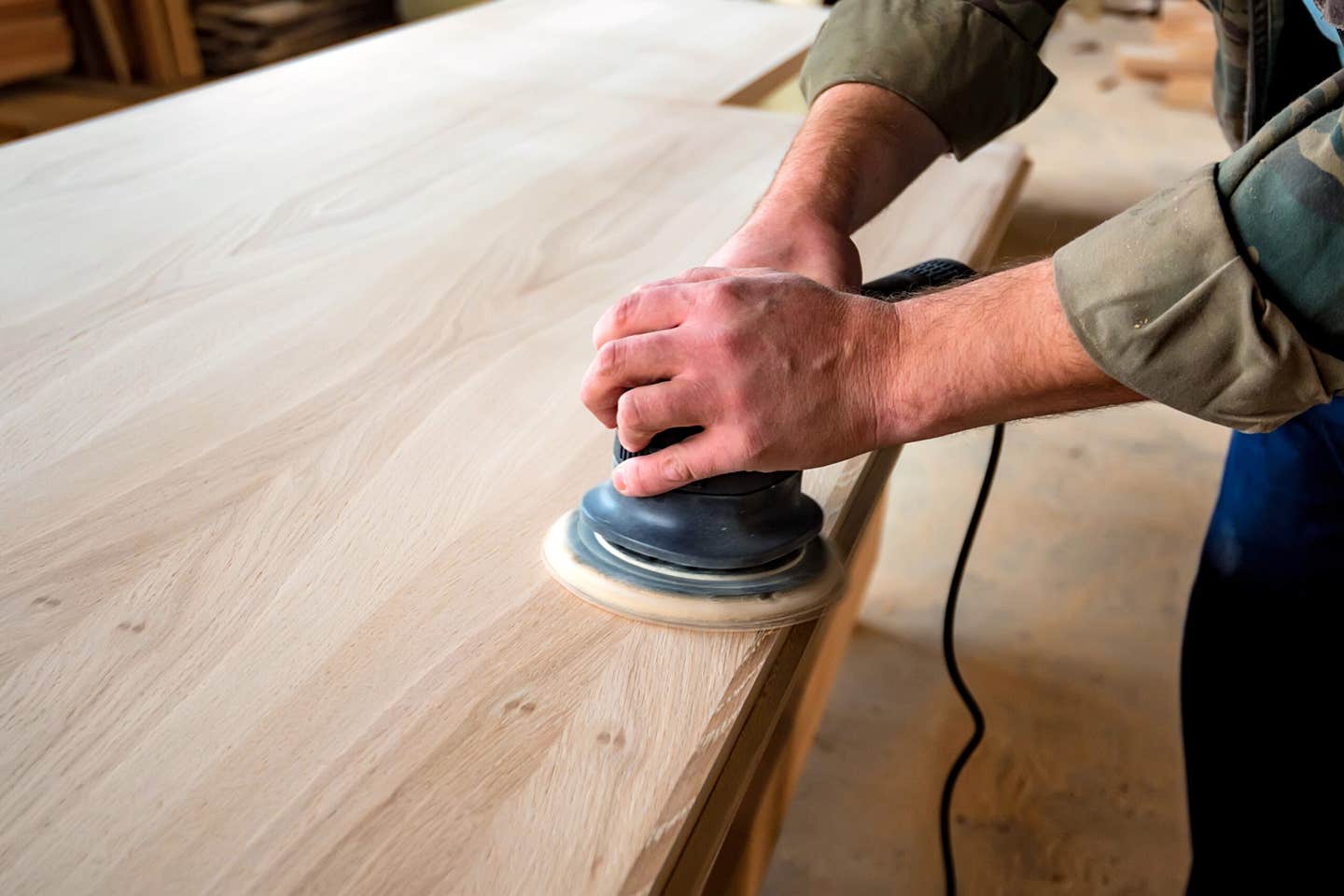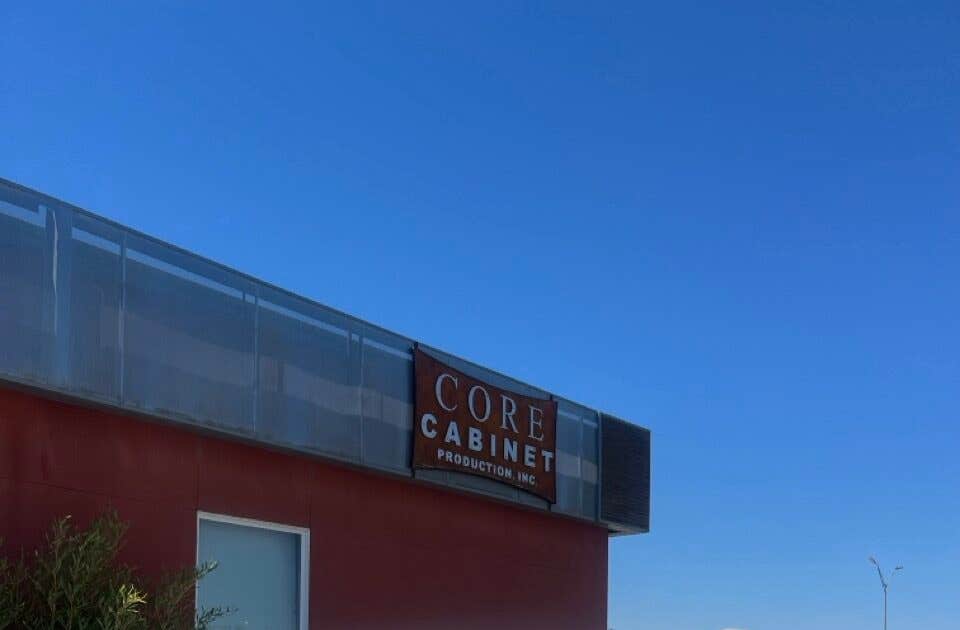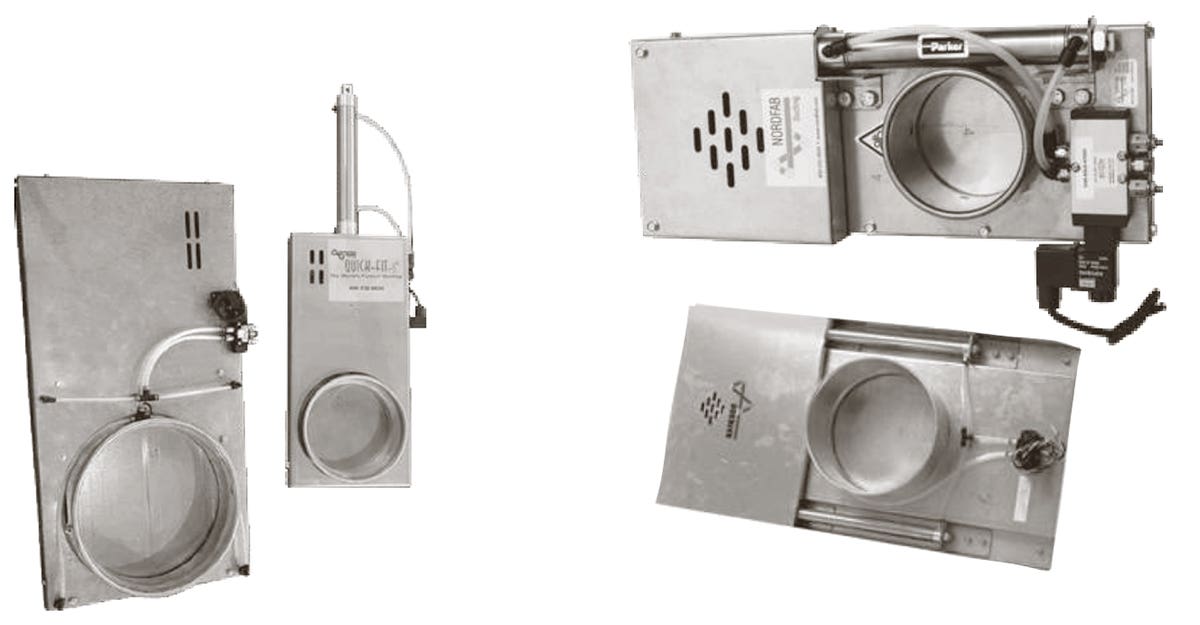Kicking the tires
Making a sizeable investment in CNC capabilities isn’t just about buying a machine. It’s also about new techniques and new partners in production; presale education and post-sale technical support; floor…
Making a sizeable investment in CNC capabilities isn’t just about buying a machine. It’s also about new techniques and new partners in production; presale education and post-sale technical support; floor space and dust collection; employee training; new computer programs and even electrical contractors.
It’s a big deal.
Unlike buying decisions where the research is primarily done before even contacting a salesperson, woodshop owners find that they need to rely rather heavily on a CNC manufacturer or supplier to find the best model and options. Because of the ongoing nature of the purchase, suppliers don’t just want to make a sale; they want to make a customer.
These machines are incredibly customizable and most woodworking requires a lot of flexibility in its processes. So matching capabilities to requirements can be a complex process.
The best way to learn what’s possible is the hands-on experience, so a lot of suppliers don’t stop at a visit to the showroom. Biesse America, for example, offers a program called Test Drive for potential buyers. It’s a hands-on, full-day immersion in the technology, software and hardware of various machines. A woodshop owner can literally “drive” the machine (or bring along somebody from the shop floor who can) and see how well each machine is matched to the production process. In the course of a whole day together, both buyer and seller will begin to fill in the holes in their respective knowledge bases. They will learn about each other’s operations, but also get to know some of the people involved on the other side of the deal. Building trust as a basis for a long-term relationship is essential, because machines and processes are bound to evolve and questions will always need to be answered. Having the opportunity to visit a factory or showroom and actually speak with the technicians who build, install or program the machines can be very reassuring.
Biesse operates showrooms in Charlotte, N.C. and Anaheim, Calif., and also three Canadian venues in Quebec, Ontario and British Columbia. The company hosts training sessions year-round with numerous machines available for roll-up-your-sleeves demonstrations.
Last year, Anderson America opened a new West Coast showroom in Henderson, Nev., where potential buyers can check out the company’s best-selling machines — the Anderson Exxact Plus, the Anderson Stratos Pro and the Omnitech Systems Selexx PAL.
Most manufacturers offer some form of ongoing training and not always at their facility. For example, AXYZ International, located in Burlington, Ontario, operates a program called CNC Routershop, which provides online training that helps buyers get their people up to speed on new machines without leaving the shop.
When shopping, ask what training is included in the price, but also what other programs might be available. Getting full benefit from a big investment usually involves getting very familiar with the machine’s potential and taking full advantage of new concepts to upgrade existing shop processes. You can’t do that without training.
Custom-tailored
One of the realities that emerge from both generic CNC training before the new machine is purchased and the hands-on experience is that a lot of shops quickly realize they can’t just buy off the rack. They need to customize the router or the software to handle very specific needs.
Because of that, a lot of manufacturers are now using lean business practices to keep inventories low. They don’t see an upside to having dozens of machines built ahead of schedule that just sit in storage, waiting to be altered after they’re sold. It makes more sense in many situations to hold off on assembling the product until a purchase order is received.
An exception to that is C.R. Onsrud, which has recently announced a program called CRO Stock Machines. Onsrud offers almost 50 standard models of 3-, 4- and 5-axis CNC routers, mills and machining centers, as well as a complete line of tooling and accessories. Because there are always going to be some shops that don’t need to customize, the company has started keeping an inventory of its best-selling models in stock, ready to be shipped immediately. Whether a woodshop has just done all its homework and is completely ready to start making parts or perhaps wants to take advantage of tax incentives or financing options that will expire soon, some owners want a machine delivered right now.
One-stop shopping
If the router update is going to be part of a larger, shop-wide upgrade, it can make sense to shop in a single venue. Major woodworking shows are an obvious option here: a woodshop owner can visit several manufacturers over the course of a few days and compare apples to apples. The next big one on the calendar is the International Woodworking Fair, scheduled for Aug. 24-27 at the Georgia World Congress Center in Atlanta.
Woodshop News publishes a show planner in advance of the show, which will list all the relevant suppliers and their booth locations. As of January, the IWF posted that there were more than 450 exhibitors signed up, but a listing on the organization’s website suggests that number might already be closer to 750. The advantage to such a mammoth representation is that a woodworker can look at everything from machines to software, parts and even financing, all under one roof. Need spare spindles or custom tooling? How about carts or a forklift to move parts around the new machine or more efficient dust bags for the collector? Just turn around: that vendor is in the next aisle.
Another option for one-stop shopping is to visit a single company that supplies all of the components, such as SCM Group or Stiles Machinery. Working with a single vendor can simplify everything from financing to delivery schedules and post-sales service. There might also be an opportunity for package or bundle pricing.
Stiles is known for its Total Production Solutions approach to manufacturing, which covers consulting and equipment integration, education, service, parts and more. The company hired more than 40 new field service representatives in 2015. Stiles also runs a huge training program called Stiles University, which has trained more than 38,000 machine operators during the last 25 years. Courses are accredited through the International Association for Continuing Education and Training.
Laguna Tools is another one-stop shopping source. Its flagship CNC, the Smartshop CF16, boasts a 6’ x 20’ machining area. The newest addition to the line, the Smartshop III, is a moving gantry CNC router that comes standard with a 12-hp HSD spindle in either an ISO-30 or HSK 63 tool holder.
The money angle
Most manufacturers and distributors have teamed up with banks or other financial institutions to offer financing and leasing plans. For a woodshop owner, that convenience can often be the difference between buying and waiting. But 2016 might turn out to be a little different.
With the recent change in the Federal Reserve’s attitude toward interest rates, it’s going to pay to take a good hard look at financing this year. For example, if rates trend upward in the next few years, variable rate loans might not be so attractive. On the other hand, if rates increase we’ll probably see some inflation, so buying sooner might be a better choice. It’s a gamble either way.
Leasing, rather than buying, can be a viable option and most larger manufacturers offer comprehensive programs. Thermwood supplies a wide range of 3- and 5-axis CNCs, so the company has developed an interesting online tool. It’s a relatively simple calculator that allows a woodshop to figure out what a lease would cost in terms of both monthly and hourly payments.
Thermwood points out several factors to consider when looking at leasing, including the interesting snippet that “monthly lease payments are on par with hiring an employee with health benefits.” If expanding production means choosing between hiring one new person on the shop floor or leasing a CNC router, that’s certainly food for thought. Of course, the size and capabilities of the machine will influence any decision. But if adding a large CNC router will increase production capacity beyond the output of a single new shop floor employee and there is a market for the larger volume, then it’s obviously time to look at upgrading.
Leasing a CNC router can save some up-front cash, and will offer a couple of opportunities down the road. There might be a residual value at the end of the lease that is attractive (that is, the shop can buy the equipment at a decent price). And, in some cases, the woodshop can find itself in a better bargaining position when it comes to upgrading a leased machine than selling one it owns outright on the secondary market.
Speaking of selling machines, sometimes a shop doesn’t actually need the very latest equipment and buying used might be a better idea. With used equipment there are always questions and choosing the right source can alleviate a lot of that stress. Buying from a reputable dealer, even if it costs a bit more than a direct sale (buying from another woodshop), can pay dividends if something goes wrong. A private sale is generally regarded as being covered by caveat emptor (the concept of “buyer beware”). That is, the assumption is that you buy as is. With a dealer involved, there can be some recourse and possibly even a warranty period.
Some of the better-known and reputable used equipment dealers are Ex-Factory, Global Sales Group, Hermance Machine Co., Komo Machine, RT Machine and SoCalMachinery.
Sources near and far
If a shop is looking to purchase locally, or at least regionally, finding a reputable supplier of large scale CNC equipment isn’t too difficult. For example, D.S. Brown Machinery is located in Winchester, Va., and represents many of the major brands. Diversified Machine Systems operates from Colorado Springs, Co., where it designs and manufacturers its 3- and 5-axis CNC machining centers. Freedom Machine Tool is a subsidiary.
In New York, there’s FMT Machinery, which operates from premises in the town of Bay Shore on Long Island. There, the company operates a training and technology center and sells C.R. Onsrud, Timesavers and Weinig equipment.
Hendrick Mfg. in Salem, Mass., offers one of the broadest ranges of panel saws and CNC routers on the market, including 3- and 5-axis machines, plus all the software and tooling. Jenkins Systems & Service in Sheboygan, Wis., offers CNC machines for specific functions, including trimming, contouring, drilling, angular gain, corner rounding, coping, sanding, notching, tenoning and haunching.
Komo Machine in Lakewood, N.J., offers an entire line of CNC routers and machining centers, all of which are manufactured in the U.S. Komo is a subsidiary of PMC Global Inc.
Limtech Industries is in Gastonia, N.C., and has been building industrial quality CNC equipment for 30 years in its 50,000-sq.-ft. manufacturing facility in Taiwan. One interesting aspect of the product line is that Limtech uses non-proprietary name-brand components, so its customers can do an Internet search for parts from competitive local suppliers without having to rely solely on the manufacturer.
Masterwood, an Italian manufacturer, can be contacted through VTM Engineered Inc. in Las Vegas. Masterwood’s offerings include 23 stock models.
New CNC Co. in Holland. Mich., offers the new 63” x 122” Smart 510 Series 2, which is a moving gantry model with an air-cooled 12.6-hp combination router/shaper spindle using HSK63 tool-holders.
Golden Hill Woodworking Machinery Ltd in Richmond Hill, Ontario, is the sole North American distributor for the Silver line of CNC equipment. Manufactured in Asia, its major components are from Europe and all of the machines carry a limited one-year warranty.
SNX Technologies in Sauk Rapids, Minn., imports the nVentor series of CNC routers. With a background in woodshop production, SNX designed specs for the series to tweak the machines for North American shops and their customers. The company also manufactures woodworking machinery in the U.S.
Soukup America, with offices in Ridgway, Co. and Vancouver, British Columbia, specializes in CNC equipment for both window and door machining and timber framing.
And one last essential stop for woodshop owners shopping for larger CNC solutions is Vorwood in Anderson, Calif. The company has been building machinery since 1961 and offers about a dozen shaper/sander and edge milling CNC machines.
For company contact information, please visit the online resource guide at www.woodshopnews.com.
This article originally appeared in the February 2016 issue.







